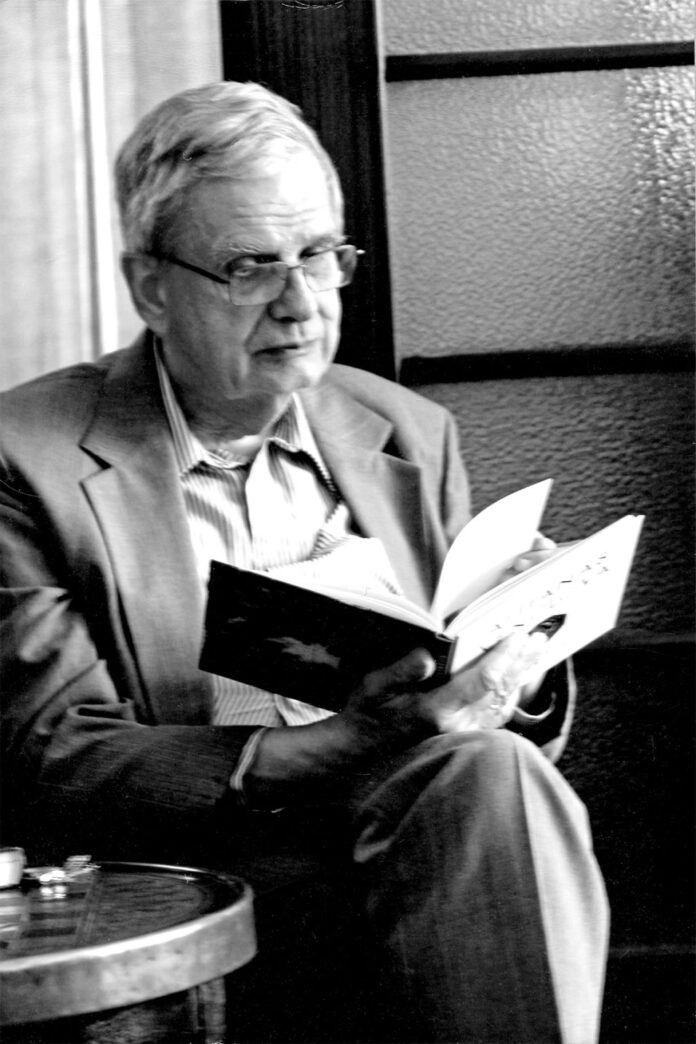
A major figure in Lithuanian literature and thinking, Tomas Venclova (born 11 September 1937, in Klaipėda) is a Lithuanian poet, prose writer, scholar, philologist and translator of literature. He is one of the five founding members of the Lithuanian Helsinki Group. In 1977, following his dissident activities, he was forced to emigrate and was deprived of his Soviet citizenship. Since 1980 he has taught Russian and Polish literature at Yale University. Considered a major figure in world literature, he has received many awards, including the Prize of Two Nations (received jointly with Czesław Miłosz), and The Person of Tolerance of the Year Award from the Sugihara Foundation, among other honours.
He has published over twenty books including volumes of poetry, literary criticism, political commentary, literary biography, translation and books on Vilnius. His work has been translated into many languages including by Czesław Miłosz into Polish, and by Joseph Brodsky into Russian. Currently living in Lithuania, he is active in its contemporary cultural life of Lithuania, and is one of its most well-respected figures.
Last week, the Lithuanian newspaper Draugas in Chicago published an interview with Venclova in which journalist Ramūnas Čičelis asked Venclova about emigration and repatriation, cultural differences and other topics. (For Lithuanian text, see http://www.draugas.org/tomas-venclova-apie-emigracija-kultura-ir-politika). Here is a summary of the interview.
Asked if he has any regrets about his decision to return to Lithuania to live, he said he is perfectly happy there, and feels more useful than when he was on the other side of the Atlantic. He prefers living in Europe than in America, and Lithuania is truly European today. In Vilnius, he finds people are much more courteous, showing more good-will and dignity than when he left Lithuania during the Soviet era. They are more civilized and attuned to the European psyche, letting go of the slavish, sycophantic mentality of those times.
Is cooperation between Eastern Slavic culture and Western civilization possible? Venclova answered that the Eastern Slavs are not only from Russia, but also, for example, Ukraine, with which dialogue is developing normally. Political dialogue with Russia is practically impossible at this point, due to Russia’s stance, but this will not last forever. True culture, which is neither commercialized or ideologized, has nothing to do with politics.
In order to understand Russia, should we read its classic literature? And which authors or works are most important to read in the context of today’s Russia? The classics of any nation are always worth reading, as are current authors, said Venclova. He recommends Guzel Yakhina’s Zuleikha and Timur Kibirov’s The General and his Family, which may not be top-level literature, but are humanistic in the Russian tradition and highly readable, with themes relevant to Lithuanian readers.
On politics: In Venclova’s opinion, democracy is still the best system, and can be applied in the governing of large countries. Democracy must be globalized, because otherwise wars and other crises will continue to endanger us. The current system of separate states is somewhat obsolete and even dangerous – yet their decline does not mean the decline of nations. As for the US, Donald Trump’s program was nationalistic and antiglobalistic, to say nothing of his unpredictable (and therefore dangerous) character. Nothing came of it except great embarrassment. Luckily, despite his scandalous excesses, US democracy prevailed and he was removed by constitutional means. In fact, US democracy is not under threat, and Joe Biden’s victory is a good sign for humanity, as the wisest Republicans also realize.
Venclova endedthe interview saying that whatever may happen, he believes in historic progress. Despite temporary setbacks, the general tendency from the Middle Ages to the 21st century inspires hope more than other emotions. This is clear from the fact that humanity overcame both Nazism and Soviet totalitarianism, and their current variants are much weaker. Progress is not automatic and scientifically provable, but it does exist.
Tomas Venclova visited Scotland as part of Lithuanian Days in Scotland in October 2019 and compared experiences of Union in his home country and Scotland. Read about him in English at: thedrouth.org.



























